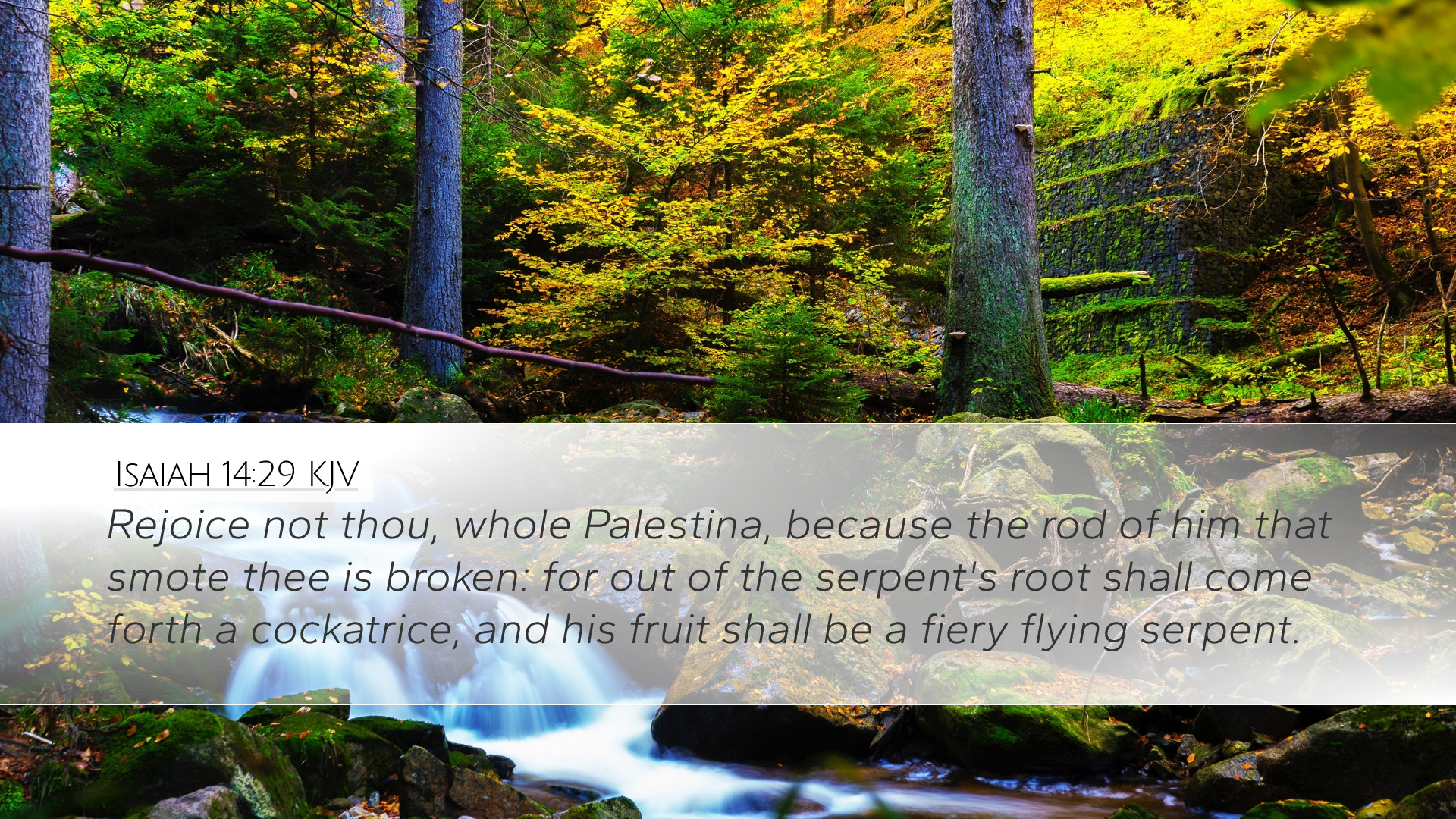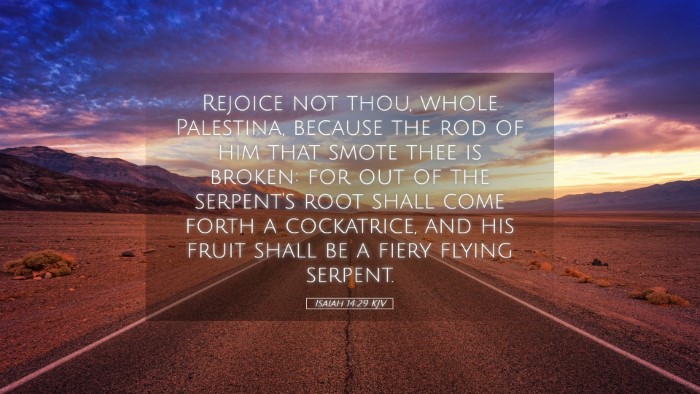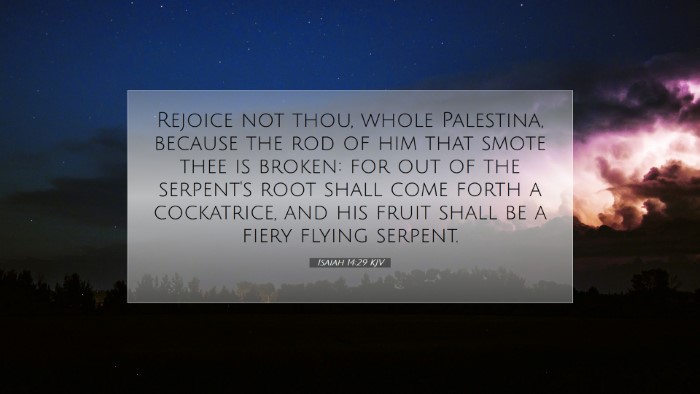Commentary on Isaiah 14:29
Isaiah 14:29 states:
"Rejoice not thou, whole Palestina, because the rod of him that smote thee is broken: for out of the serpent's root shall come forth a cockatrice, and his fruit shall be a fiery flying serpent."
Introduction
This verse appears within the prophetic context of Isaiah, warning the inhabitants of Philistia regarding their rejoicing over the downfall of the Assyrian Empire. It serves as a reminder of God's sovereignty, particularly concerning the rise and fall of nations. Various public domain commentaries provide valuable insights into the theological implications and historical context surrounding this scripture.
Historical Context
During the time of Isaiah, Assyria was a formidable power, known for its brutality and oppression of surrounding nations, including Israel and the Philistines. The passage reflects the complexities of the power dynamics of the ancient Near East, where nations would often rejoice at the defeat of a common enemy.
However, Isaiah cautions against this premature celebration, hinting at the cyclical nature of divine judgment and the eventual emergence of new threats.
Interpretation of Key Phrases
-
“Rejoice not thou, whole Palestina”
This admonition indicates that Philistia’s sense of security is misplaced. Their joy is rooted in a misinterpretation of the situation, as their enemies' downfall does not equate to their safety.
-
“because the rod of him that smote thee is broken”
The "rod" symbolizes Assyria's power and the judgment executed upon Philistia. While Assyria's defeat signifies relief from oppression, it beckons another concern—rising threats.
-
“out of the serpent's root shall come forth a cockatrice”
This metaphor implies that from what appears to be a broken power (the serpent), a more dangerous adversary (the cockatrice) will arise. This reflects the continuity of conflict and the nature of evil, which might emerge in different forms.
-
“his fruit shall be a fiery flying serpent”
The imagery of a "fiery flying serpent" evokes danger and destruction. It underscores how one threat gives way to another, a common biblical theme illustrating that evil is relentless. This serves as a warning that deliverance from one enemy does not mean escape from all peril.
Theological Implications
Commentators like Matthew Henry emphasize the sovereignty of God, suggesting that even the rise and fall of nations serve a divine purpose. This verse teaches that the power dynamics between nations are ultimately governed by God's will.
Albert Barnes reflects upon the inconsistency of human joy rooted in transient victories, reminding believers that true assurance comes from reliance on God, rather than the instability of political states or military confrontations.
Moral and Spiritual Lessons
From this verse, several lessons can be drawn for modern readers, such as:
-
Beware of False Security:
The downfall of an enemy does not guarantee safety. Believers are reminded to seek refuge in God's strength rather than in shifting political fortunes.
-
Acknowledge the Complexity of Evil:
The nature of evil is such that it often transforms rather than dissipates. Recognizing this helps in preparing oneself for the spiritual battles that lie ahead.
-
God's Sovereignty Over Nations:
Isaiah's prophecy reminds readers that God is in control. Even when circumstances seem dire, His hand governs history, and He can raise up and bring down nations as He wills.
Conclusion
In Isaiah 14:29, the ancient prophecy serves as a timeless warning against misplaced joy and false hope. Through the insights of various commentaries, it becomes clear that while nations may rise and fall, God's eternal plan prevails. This passage serves as a call to vigilance, urging believers to align their trust with God rather than with the tumultuous nature of worldly politics.


